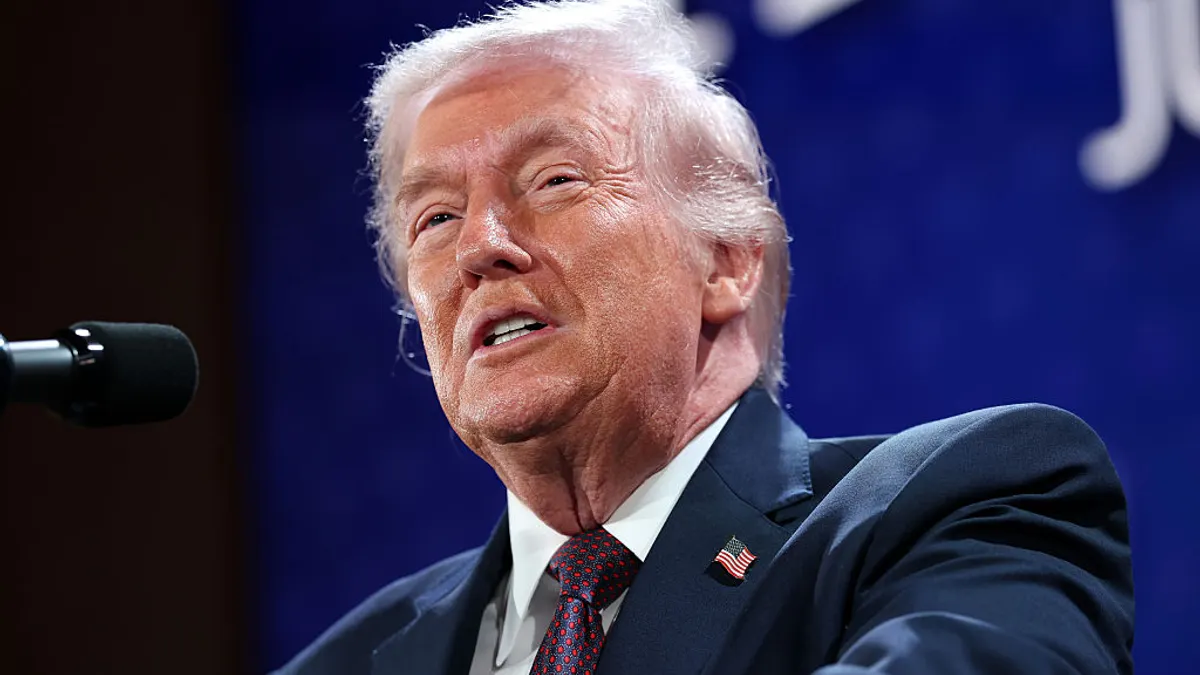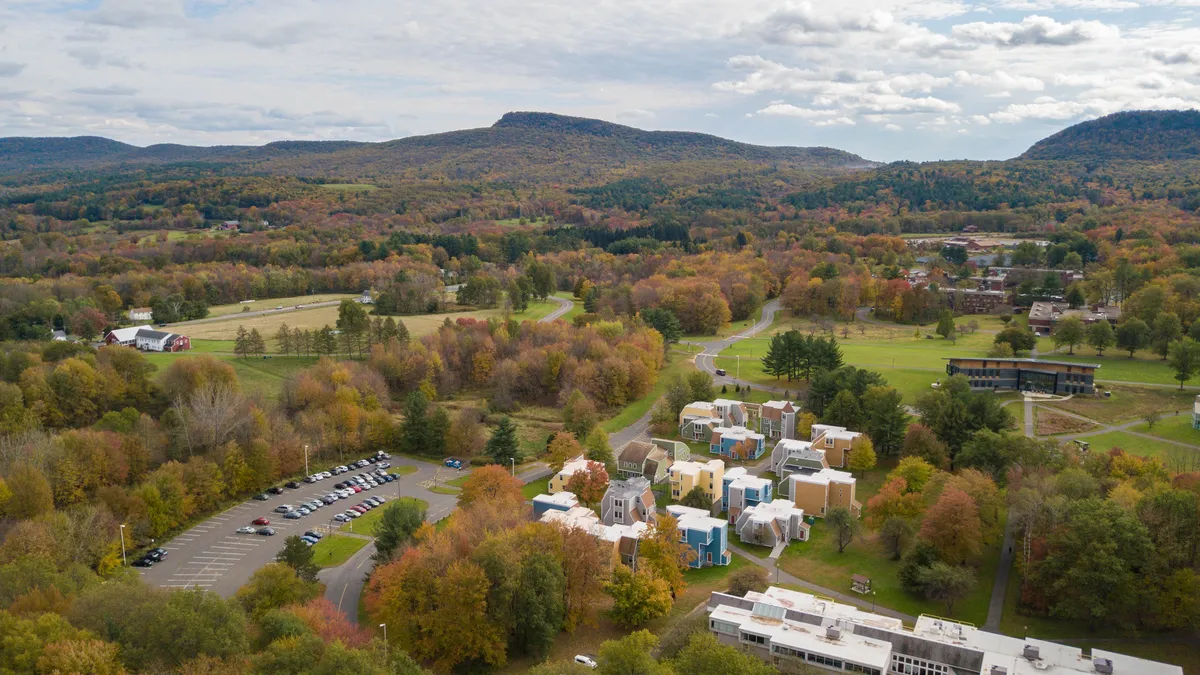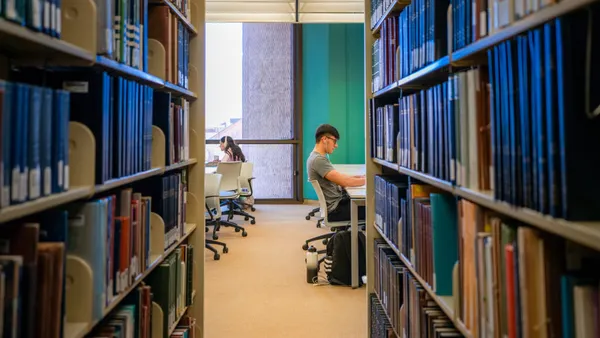Dive Brief:
- Several higher education groups filed a lawsuit Friday challenging the Trump administration’s new $100,000 fee for H-1B visas, alleging the policy could cause “catastrophic setbacks” to research in the U.S.
- The American Association of University Professors and labor unions representing tens of thousands of higher ed workers joined groups representing the healthcare, K-12 and religious sectors to challenge the policy, which the Trump administration abruptly rolled out last month.
- They argued that the fee would likely result in “sharp cutbacks in the employment of highly talented foreign workers and severe setbacks for university research, graduate programs, and clinical care.”
Dive Insight:
President Donald Trump issued a surprise proclamation Sept. 19 declaring that the federal government would impose a $100,000 fee on H-1B applications, spurring alarm in the higher ed world.
Large universities often hire foreign academics and researchers using the visas, which allow skilled international workers to work in the U.S. temporarily. Congress has imposed an annual cap on the number of H-1B visas available each fiscal year, but colleges and nonprofit research institutions are exempt from that limit.
The steep new application fee could create major financial headaches for the higher ed sector. Before the new policy, each H-1B visa application cost employers between $2,000 and $5,000, according to the American Immigration Council.
Following conflicting messages from Trump administration officials about elements of the new policy, White House Press Secretary Karoline Leavitt posted on social media that the $100,000 fee would only apply to new petitions for H-1B visas. Further, H-1B visa holders outside the U.S. will not be charged $100,000 to reenter the country, Leavitt said.
The groups allege that the new policy oversteps the Trump administration’s authority, arguing that Congress has already established a “clear framework” for the fees employers pay for H-1B visa applications.
“The Constitution assigns the ‘power of the purse’ to Congress, as one of its most fundamental premises,” the lawsuit says. “Here, the President disregarded those limitations, asserted power he does not have, and displaced a complex, Congressionally specified system for evaluating petitions and granting H-1B visas.”
The groups also accuse the new policy of being arbitrary and capricious, arguing that the Trump administration “failed to consider how extorting exorbitant fees will stifle innovation.” They also accused the Trump administration of failing to consider or “coherently explain” other important information about the new policy, such as where the $100,000 fees will go and how the money will be used.
They also argued that the new policy’s rollout violates the Administrative Procedure Act. Under the APA, a policy that creates new obligations for H-1B visas would require a notice and comment period, according to the lawsuit. It would also have to be announced at least 30 days before it became effective, yet the new fee took effect shortly after it was announced, the lawsuit said.
According to the lawsuit, some researchers are already feeling the impact of the new policy. For instance, one AAUP member received a job offer from a major research university where they are completing post-doctoral work. Although the university had planned to procure an H-1B visa for the student by this fall, it has put those plans on indefinite hold due to the $100,000 fee.
The groups are asking the judge overseeing the case to declare the new $100,000 fee unlawful and force the Trump administration to process H-1B applications under existing law.















